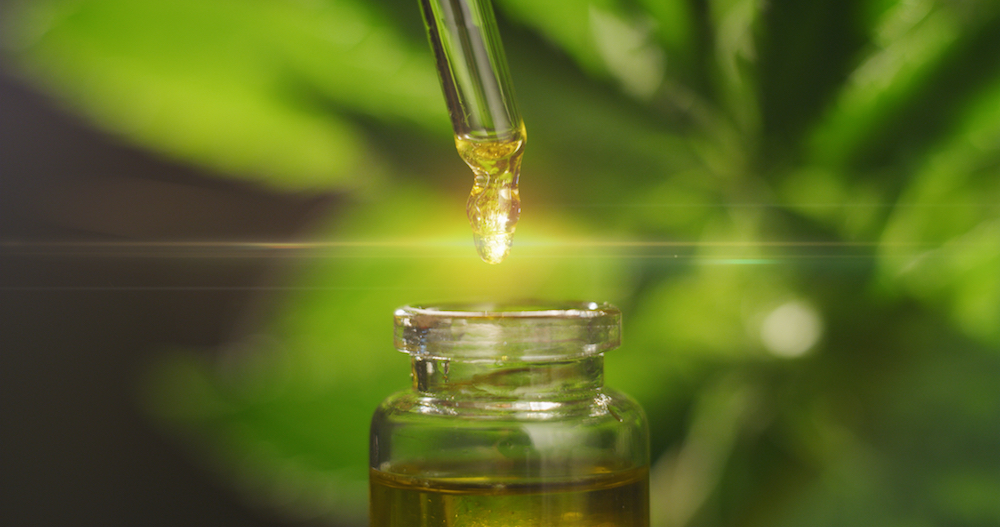What is CBD?
CBD, as cannabidiol is commonly known, is suddenly everywhere. Available as sublingual tinctures (drops that you put under your tongue and enter the bloodstream through the artery there), edibles, and topicals, CBD has become today’s miracle cure-all. Extracted as oil from the industrial hemp leaf, CBD is purported to offer fantastic therapeutic and health benefits. Many studies are underway and the science or integrity of the advantages is beyond the scope of this article.
Is It Legal?
The answer is “mostly.”
Thanks to the 2018 Farm Bill that legalized industrial hemp and products derived from industrial hemp, CBD is now federally legal. You can also get CBD from cannabis (commonly called marijuana), which is not federally legal at this time.
It’s important to note before going into any industry that a significant risk factor is regulatory uncertainty and complexity. That’s one of the reasons it’s hard to be a small player in the banking or energy industry, for instance. When it comes to you running a CBD business, the regulatory framework for products containing CBD hasn’t been created yet. On the one hand, a lack of mature regulations makes available the opportunity for tremendous growth and profits. On the other hand, uncertainty comes with risk.
Will there be more regulations soon?
From fda.gov: “The FDA is currently evaluating the regulatory frameworks that apply to certain cannabis-derived products intended for non-drug uses, including whether and how the FDA might consider updating its regulations, as well as whether potential legislation might be appropriate. The information we have underscores the need for further study and high quality, scientific information about the safety and potential uses of CBD.”
So, “yes.” You can expect the FDA to create a regulatory framework for both cannabis and hemp-derived CBD. Any new regulatory framework comes with input from the industry and consumers. Still, you can also expect some of the new regulations to dramatically impact the way products are formulated, marketed, and sold.
Due to the uncertainty, certain business elements, including banking, payment processing, and advertising, will involve overcoming practices leftover from before CBD was federally legal. This can include being refused business bank accounts or credit, having advertisements blocked or social media accounts closed, or even losing access to payment processing systems.
Before You Dive In
While a CBD business doesn’t require the same level of available capital as heavy manufacturing or even some franchises, you must answer several critical questions before you start.
- How are you going to support yourself until the business is generating a healthy profit? You have to look at how much you’ll need and how long you’ll need it. Are you going to start the business and keep your current job? Do you have enough cash available to manufacture, market, and distribute the product? This will take some research and planning.
- What is the product, and how do you plan to manufacture the product? CBD oil products can certainly be produced in your own home. Still, you may find that any savings from doing it yourself wouldn’t be worth it when you consider a facility/contract manufacturer that already has expertise that can help you at every stage of developing and delivering the product.
- How do you plan to market and sell the product? Most people, when starting a business, lack a viable plan to market and sell their product. Abandoned websites from aspiring entrepreneurs who had a great idea but didn’t know how to get it into the world are everywhere.
Don’t Wait to Be Ready.
While you want to have a plan before you dive in, that doesn’t mean waiting until you feel you’re ready. Once you have the three key questions above answered, set a deadline for launch. Do whatever it takes to be prepared for that launch date. Most businesses wither on the vine and die because they waited until they felt ready to launch. That’s backward. Set the time, and don’t miss it. Include the date in your conversations with friends, family, vendors, and potential customers. Get yourself on the hook for launching.
Don’t Go It Alone: Find the Right Vendors.
So why partner with vendors?
First, any new venture is going to come with a lot to do and a lot that you don’t know or aren’t an expert at doing. In addition to saving your time and money, they’ll see and anticipate things you can’t say, yet. Vendors become a community for a new business interrupting the thoughts and feelings you may have that leave you feeling overwhelmed or on your own.
The biggest vendor partners for your CBD business are:
- Raw-materials vendor. Unless you’ve got your substantial hemp farm and extraction equipment, you’re going to need someone you trust to provide the hemp leaves and the CBD oil extract. Using a provider with an established track record for timely delivery of quality ingredients is critical to your success.
- Contract lab and manufacturer. Are you a chemist? If not, using a reputable collaborator to develop and manufacture your products will be a big part of getting a high-quality product to market. Many contract manufacturers can also provide great packaging options.
- Marketing agent with sector expertise. Marketing CBD products is not the same as marketing products in mainstream, mature industries. Additionally, platforms like Amazon, Facebook, and Google Ads will still limit or even block CBD products. While this will likely change in the future, if you’re counting on these as your primary outlet to consumers, you may be in for a rough startup. A marketer that knows where to safely and effectively market your products will be considerable savings in the long-run.
- Sales and distribution platform. As with marketing, right now, you can’t just put a store up on Amazon and sell CBD-based products. Many CBD businesses are hosting their web store with built-in payment processing. It takes a little more effort and expertise to set up your web store; it makes a lot of sense in the current regulatory climate.
- Legal and regulatory expert. Until the regulations are stable and mature, which may take years, having someone that knows this industry and what is currently legal and acceptable will save you money and anxiety. You almost have to be able to anticipate how the government will regulate the industry. Some experts specialize in keeping ahead of the regulations, and they are worth finding. It will also make a difference to read reputable industry publications to increase your knowledge.
Get the Word Out
Telling everyone you know and don’t know about your new business is critical. You never know who will be in the market for your CBD product. Share why you’re starting the business, including who you want to help and when you’re launching. Uncomfortable? Almost everyone starts that way. Practice what you’re going to say in the mirror and see if you can connect with the person in the mirror. Write out what you want to say and test it on friends. I’m pretty sure there’s never been a business that failed because too many people knew about it!
The Bottom Line
While a CBD business isn’t necessarily more challenging than any other kind of business there is a lot to deal with when starting one up. Find people that are already doing it and ask them who they use for advice and manufacturing. Don’t try to go it alone. Get as much help and involvement as you can. Who knows, that person you talked to at the grocery store might end up your biggest fan!


